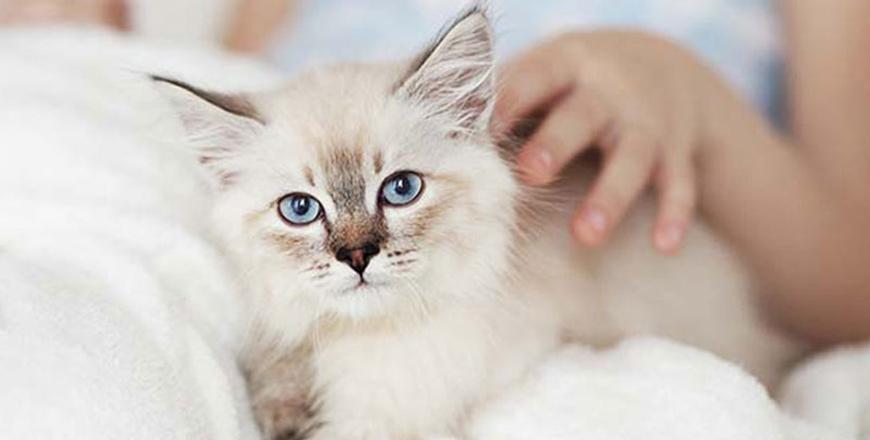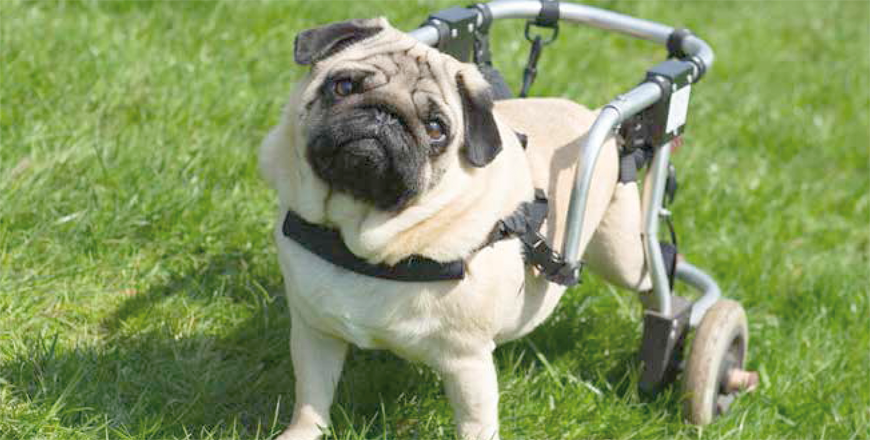You are here
Ageing pets
May 13,2018 - Last updated at May 13,2018

Photo courtesy of Family Flavours magazine
By Silvia Zayadin
Veterinarian
Senior pets are such a delight and these sweet old souls deserve the best of everything. Unlike humans, your pet cannot take responsibility for its care. It relies on you! Cats and dogs age differently than humans. Cats and small dogs are generally considered seniors around the age of seven. It can be hard to believe that the your energetic and full-of-life pet is now that calm old friend curled at your feet.
Signs of ageing
Changes occur in your pet’s body as it ages. Some pets may have more pronounced changes than others and, in some animals, the changes may start at a younger age. We can help older animals adapt to these changes in a variety of ways:
• Diagnosing problems early
• Use of appropriate medications and supplements
• Modifying your pet’s environment
• Changing the way in which we interact with our older friends
Average lifespans
In general, pets are considered senior when they are around seven years old in human years, but there are some variations depending on the breed. The average lifespan of a dog is around 12 to 15 years.
Smaller dog breeds tend to live longer on average, while large and giant dog breeds have shorter lifespans. Therefore, a small dog is considered a senior at an older age, such as age eight to ten. In turn, a large breed of dog may be considered a senior by age five or six. In domestic indoor cats, the average lifespan is around 12 to 17 years. Some animals appear to age faster than others; this may be due to genetic background and overall health
What behavioural changes will I see in my pet as it ages?
With age, certain needs start to become more and more important. Knowing your pet’s behaviour is essential to understanding its needs that come with age. Possible changes in older pets include:
• Increased reaction to sounds
• Confusion
• Disorientation
• Increased wandering
• Decreased interaction with humans
• House soiling
• Decreased response to command
• Increased anxiety
• Increased vocalisation
• Decreased self-hygiene
• Increased irritability
• Repetitive activity
• Change in sleep cycles
• Increased aggressive and protective behaviour
Pets can show signs of senility. Stimulating them through interactions can help keep them mentally active. If any changes in your pet’s behaviour are noticed, consult your veterinarian.
When should I start to take extra care?
As your pet ages, two kinds of changes occur:
1. Age-related change: hearing loss, changes in vision or reduced activity. These are normal and cannot be prevented
2. Pathological change or disease: heart disease, kidney disease, arthritis or dental disease
We expect certain changes to occur as your pet ages. These changes are not the same in each animal species. In small dog breeds, changes in the heart are common, whereas in large dog breeds, joint and bone issues are more common. In cats, the kidneys may be one of the first organs to show signs of ageing.
I recommend regular medical examinations for your pet once it is over seven years old. This includes clinical examination twice a year and blood testing once a year. Ask for a body condition evaluation during each vet visit. Body condition score is important to determining whether your senior pet is overweight, underweight or at an ideal body weight. Specific examinations for known breed-related medical problems are also advised (heart examination for Golden Retrievers and orthopaedic examination for German Shepherds).
How can I take care
of my senior pet?
Schedule regular visits with your veterinarian: This aids in early disease detection and increases the chances of disease treatment or management Feed your senior pet a high quality diet and use food to keep your senior pet at its ideal body weight: Always choose a diet that is appropriate for your pet’s age and lifestyle. Remember that overweight animals have a higher incidence of diseases such as diabetes, heart disease, skin disease and even cancer.
Take care of your pet’s oral hygiene: Brush your pet’s teeth or use appropriate dental care products such as dental treats. This aids in maintaining good oral hygiene and preventing accumulation of tartar and possible gum diseases.
Add essential fatty acids and nutritional supplements to your senior pet’s diet: fatty acids are useful for dogs with mobility issues due to arthritis or other joint diseases. Supplements such as glucosamine and chondroitin are beneficial for senior animals.
Exercise your senior dog: Plan your dog’s exercise needs to his or her individual requirements. If your senior is not used to exercise, start slow and gradually increase the intensity without exhausting the animal.
Provide plenty of toys to keep your senior dog occupied: This will keep your pet focused, occupied and entertained.
Consider a special diet if your older dog has heart or kidney disease: Diets which help control phosphorus, calcium and other electrolyte levels are given to pets with kidney disease. A diets low in sodium content is best for pets with heart disease. Your veterinarian will help you choose the best food for your pet based on your pet’s individual situation.
Reprinted with permission from Family Flavours magazine
Related Articles
By Dr Silvia ZayadinVeterinarianSummer is finally here and it is time to plan for your next vacation.
Allergies in pets are common, accounting for many pet-related problems and visits to the veterinarian. Causes can vary — food or environment triggers or having no known origin. A pet’s allergy tends to worsen with age, affecting its quality of life if not managed correctly or on time. Here is my medical advice on how to help your pet.
These conditions often require dedicated care and management from both pet owners and veterinary professionals. Defects can impact various parts of the body or organ systems, leading to unique challenges in the pet’s daily life and routine.



















